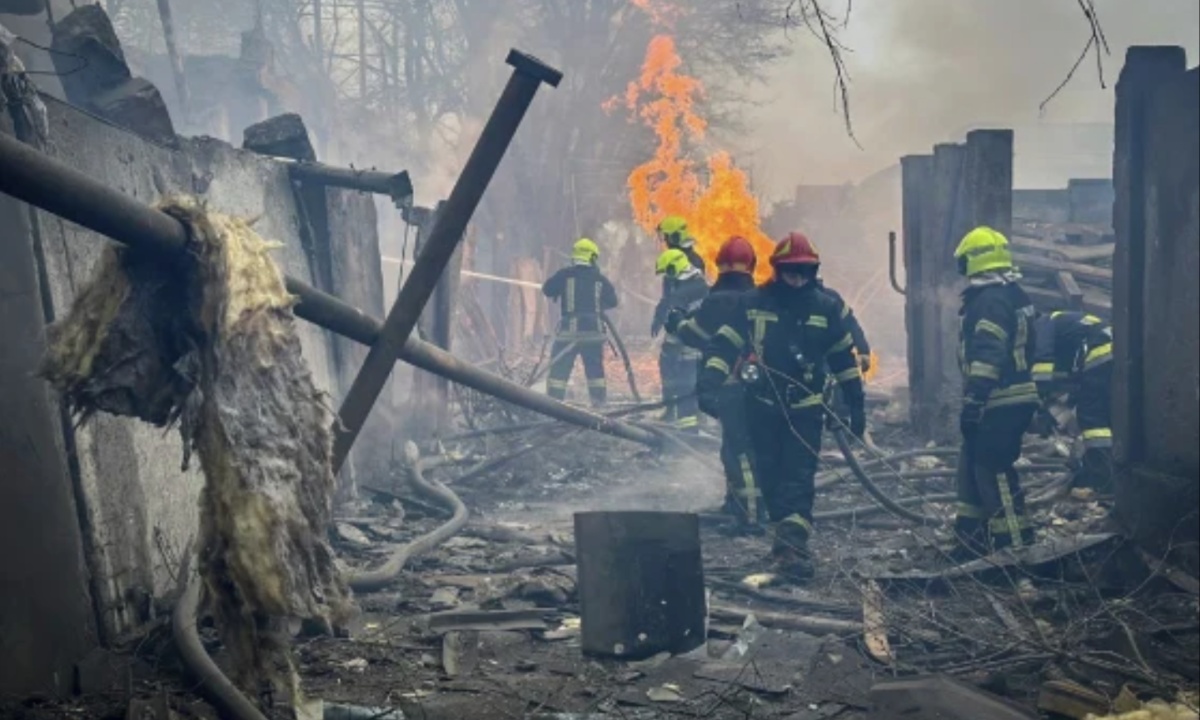Overnight, Russian forces launched ballistic missile strikes on the Ukrainian port city of Odessa for the second consecutive day, resulting in the deaths of four individuals, including a 16-year-old girl. At least ten other civilians were injured in the attack, according to local officials.
State Emergency Service workers reported that they retrieved the bodies of the girl, a 43-year-old woman, and a 22-year-old man from the debris of a two-story residential commercial building that was directly hit by a missile. The fourth victim, a woman, succumbed to her injuries in the hospital, while nine others were hospitalized, with four in serious condition.
Odessa Governor Oleh Kiper expressed his condolences to the families affected by the attack and stated that law enforcement agencies were investigating the incident as another crime committed against the civilian population of Odessa.
This missile strike followed an aerial assault the previous day, which resulted in the deaths of eight Ukrainians and injuries to eleven others when a civilian container ship was hit. These attacks are part of a larger pattern, with Russian forces intensifying their drone and missile assaults across half of Ukraine’s 24 provinces.

Among the recent targets was the Panamanian-registered vessel, Shui Spirit, marking the third commercial ship hit in four days within the port. Officials from President Volodymyr Zelensky’s government accused Moscow of attempting to disrupt Ukraine’s critical grain exports to the global market.
As one of the world’s largest grain producers, Ukraine opened a maritime corridor in the summer of 2023 for ships leaving its Black Sea ports, despite Russia’s withdrawal from a previously established agreement that guaranteed safe passage for agricultural shipments.
The recent escalation in attacks coincided with the first joint visit of U.S. Secretary of State Antony Blinken and British Foreign Secretary David Lammy to Kyiv. During their visit, Lammy announced at least $784 million in aid and loan guarantees for Ukraine.
This announcement was accompanied by a commitment from Defense Secretary John Healey, who pledged to deliver additional military support, including air defense missiles and artillery ammunition, by year-end.
In parallel, President Zelensky was on a tour of European capitals to promote his “victory plan,” seeking additional military assistance. His visit included meetings with French President Emmanuel Macron in Paris, where no new aid pledges were made, and British Prime Minister Keir Starmer, who reaffirmed the United Kingdom’s strong support for Ukraine.
Zelensky’s victory plan emphasizes a surge in weapons and ammunition, heightened diplomatic pressure on Moscow, lifting restrictions on using Western-supplied long-range missiles against Russian military targets and formalizing Ukraine’s path toward NATO membership.


